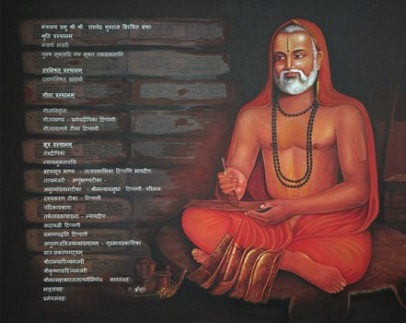Raghavendra Swamy’s works – A Gateway to Bhakti
Raghavendra Swamy is considered one of India’s greatest Saints of his times. He was a devout follower and a staunch believer in the miracles of Lord Sri Krishna. Raghavendra Swamy had diverse strengths and capabilities – he was a great scholar, a wonderful orator, a classical musician playing the Veena, a highly accomplished writer, an ardent preacher of Vaishnavism and above all, a great soul that expounded the values of Humanitarianism and the importance of Spiritual Living.
During his lifetime, under the pseudonym of Dheera Venugopala, he composed many Stotras and Keerthanas on Lord Sri Krishna. He was a great Orator and also conducted many discourses, in a language and methodology which appealed to the common man. This was his ways of ensuring that the Classics, the Scriptures, Vedas, Scholarly Texts and the ways of the Lord reaches the maximum number of people.
His works are undoubtedly a critical component of the Madhwa pantheon and ecosystem. He is also called fondly as the Madhwa Mathambodhi Chandra (The moon shining from the ocean of the Madhwa Siddhantha or the Madhwa Principles).
He is credited with having written more than forty works, including commentaries on Vyasa Raja’s Chandrika, Vedas and the Prakarnas of Madhwacharya. His “Mantrartha manjari” elucidates Madhwacharya’s Rig Bhashya. His son, Lakshminarayana, wrote “Rigartha manjari.”
Some of his works include Veda Traya Vivriti, Commentary on Pancha Suktas, Dashopanishat Khandartha, Geetartha Sangraha, Prameya Deepika Vyakhya, Geeta Tatparya Teeka Vivaranam, Tantra Deepika, Nyaya Muktavali, Tatwa Manjari, Tatwa Prakasika Bhava Deepa, Parimala, Dasa Prakarana Teeka Vyakhya, Rama Charitra Manjari, Krishna Charitra Manjari, Tatparya Nirnaya Bhava Sangraha, Vaadavali Vyakhya, Chandrika Prakasa, Tarka Tandava Vyakhya, Pramana Paddhati Vyakhya, Anu Madhwa Vijaya Vakhya, Pratha Sankalpa Gadya, Bhatta Sangraha and Prameya Sangraha.
Veda Traya Vivruti is a commentary on all three Vedas (Rig Veda, Yajur Veda and Atharvana Veda), while the Purushasooktadi Panchasookta Vyakhyana is a commentary on Purusasookta, Gharma, Samudra, Pavamana, Hiranyagarbha and Ambhrni Sooktas. Some of these are not available and there is only an oral tradition that he wrote these. A majority of his writing are commentaries on the works of the great saints Madhwacharya, Teekacharya or Jayatheertha and Vyasa Raja and of course the Upanishads.

